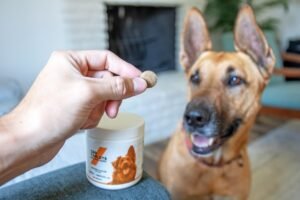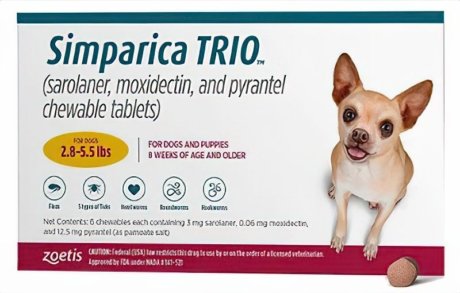Can Dogs Eat Pasta | Causes, Benefits, Health Risks
Pasta is a staple food in many households around the world, and it’s no surprise that many dog owners wonder if it’s safe to share this delicious meal with their furry friend. While pasta is not toxic to dogs, it’s important to understand the potential risks and benefits of feeding pasta to your dog. In this article, we’ll answer the question, “Can dogs eat pasta?” and provide you with a comprehensive guide to feeding your furry friend this popular human food.
Can Dogs Eat Pasta
Yes, dogs can eat pasta in moderation. Plain, cooked pasta without any seasonings or sauces is safe for dogs to consume. Pasta can be a source of carbohydrates for dogs, but it should not make up a significant portion of their diet. Ensure the pasta is cooked thoroughly and cut into small, manageable pieces for easier digestion. Additionally, avoid adding any seasonings or ingredients that may be harmful to dogs.
Can Dogs Eat Pasta Noodles
Dogs can eat pasta noodles that are plain and cooked. However, it’s important to keep in mind that pasta noodles are primarily a source of carbohydrates and do not provide significant nutritional value for dogs. They should be offered as a small portion of a balanced diet alongside more nutritious foods.

Can Dogs Eat Pasta Sauce
It is not advisable to give dogs pasta sauce, especially if it is professionally produced or contains components such as onions, garlic, or high salt levels. Many pasta sauces contain herbs, spices, and compounds that are toxic to dogs. If you want to add flavour to your dog’s pasta, use a tiny quantity of plain, low-sodium tomato sauce or explore alternatives such pureed veggies.
Can Dogs Eat Plain Pasta
Yes, dogs may consume basic pasta without of spices or sauces. Plain pasta that has been prepared without salt or spices can be a healthy and simple addition to their diet. However, like with any food, moderation is essential, and pasta should not be the primary component of a dog’s diet.
Can Dogs Eat Tomato Paste
Tomato paste should be given to dogs in moderation, if at all. While ripe, fresh tomatoes are generally safe for dogs, tomato paste is highly concentrated and may contain additives, preservatives, or other ingredients that could be harmful. It’s best to consult with your veterinarian before offering tomato paste to your dog.
Can Dogs Eat Chickpea Pasta
Chickpea pasta is typically made from ground chickpeas and is a gluten-free alternative to traditional wheat-based pasta. In moderation, cooked and plain chickpea pasta can be a safe option for dogs, especially for those with wheat allergies or sensitivities. However, as with any new food, introduce it gradually to monitor your dog’s response and ensure it agrees with their digestive system.

Can Dogs Eat Cooked Pasta
Yes, dogs can eat cooked pasta as long as it is plain and free from any seasonings, sauces, or ingredients that may be harmful to them. Cooked pasta can be a source of carbohydrates for dogs, but it should not replace a balanced diet that includes other essential nutrients.
Can Dogs Eat Pasta With Tomato Sauce
It is typically not suggested to give dogs pasta with tomato sauce, especially if the sauce contains onions, garlic, or high salt levels. Some tomato sauces may include flavours, spices, or chemicals that are toxic to dogs. If you want to give your dog pasta with sauce, use a modest quantity of basic, low-sodium tomato sauce or consider pureed veggies as an alternative.

Nutritional Value of Pasta for Dogs
Pasta consists primarily of carbohydrates and contains little to no nutritional benefit for dogs. It does, however, contain certain useful elements like as protein, fibre, and B vitamins. When giving pasta to your dog, consider how it fits into their entire diet. Because dogs require a balanced diet of protein, fat, and carbs, pasta should be given in moderation.
Types of Pasta Safe for Dogs
Not all kinds of pasta are suitable for dogs to consume. Plain, cooked pasta is acceptable for dogs, but avoid pasta meals that contain harmful elements for dogs, such as onions, garlic, and cheese. It’s best to stick to basic, unseasoned pasta for your dog, such as whole wheat or brown rice spaghetti. These pasta are simpler for dogs to digest and a healthier alternative to standard white pasta.

It’s important to know that fresh pasta contains more eggs, which might cause stomach distress in certain dogs. Dried spaghetti is a healthier choice for dogs because it is egg-free and less prone to cause stomach problems. When making pasta for your dog, avoid using spices or sauces that may include elements that are toxic to dogs.
Pasta Recipes for Dogs
There are various safe and nutritious pasta recipes you may attempt if you wish to integrate pasta into your dog’s diet. Pasta with ground turkey or chicken is a popular alternative. This dish is simple to make and supplies protein and other essential nutrients to your dog.

Cook the pasta according to the package directions, then brown the ground turkey or chicken in a separate skillet. Serve your dog in moderation with the prepared spaghetti and ground beef mixture. You may also include veggies like carrots or green beans to make the meal more healthful for your pet.
pasta with homemade tomato sauce is another dog-safe pasta dish. To make this dish, cook the pasta according to package directions, then prepare the sauce by sautéing chopped tomatoes, onions, and garlic in olive oil. Once the veggies are cooked, puree them in a food processor or blender, and then combine the sauce with the prepared pasta.
Risks of Feeding Pasta to Dogs
While pasta is generally healthy for dogs to eat, there are specific risks to giving this human meal to your furry friend. One of the most serious hazards is stomach discomfort. Dogs’ digestive systems are delicate, and eating too much pasta can result in diarrhoea, bloating, and other digestive difficulties. It is important to give pasta in moderation and to keep an eye out for any indications of gastric discomfort in your dog.
Weight gain is another concern of feeding pasta to dogs. Pasta contains a lot of carbohydrates and calories, which can contribute to weight gain if consumed in large quantities. When giving pasta to your dog, keep in mind the quantity size and balance it with other nutritious foods like protein and veggies.

Conclusion:
In conclusion, dogs can eat pasta, but it’s important to understand the nutritional value, hazards, and advantages of giving this human food to your canine companion. When feeding pasta to your dog, pick safe and healthful forms of pasta, such as plain, unseasoned spaghetti, and avoid pasta meals that include hazardous components to dogs. If you’re not sure whether a pasta dish is suitable for your dog to eat, on the side of caution and don’t serve it to them.
Pasta can provide some beneficial substances to your dog, such as protein and fibre, but it should be given in moderation and as part of a balanced diet. When giving pasta to your dog, keep in mind their overall diet and nutritional needs, and balance it with other nutritious meals like lean protein and veggies.
When making pasta for your dog, keep in mind that spices and sauces might include substances that are toxic to dogs. Instead, use plain, unseasoned pasta with healthy toppings like lean protein and veggies to make the dish more nutritious for your pet.
In short, dogs can eat pasta, but only in moderation and as part of a well-balanced diet. It is important to select safe and nutritious varieties of pasta, avoid adding any dangerous additives, and keep an eye out for any indications of digestive disturbance in your dog. You may safely add pasta into your dog’s diet and present them with a nice and healthy treat if you follow these rules.
- Can Dogs Have Cinnamon | 5 Benefits, Side Effect, Safety
- Can Dogs Eat Avocado | 10 Benefits, Health Issues, Risks
- Can Dogs Eat Potatoes | Nutrition, 8 Benefits, Risk, Health
- Can Dogs Eat Shrimp | 9 Benefits, Health Concerns, Risks
Frequently Asked Questions:
-
Can dogs eat pasta with tomato sauce?
It’s generally safe for dogs to eat pasta with homemade tomato sauce that doesn’t contain any harmful ingredients. However, store-bought tomato sauces may contain added salt, sugar, and other seasonings that can be harmful to dogs, so it’s best to avoid feeding these to your furry friend.
-
Can dogs eat pasta with meatballs?
Meatballs are a great treat for dogs, but be careful that you use lean meats like ground turkey or chicken and avoid adding any toxic ingredients like onions or garlic. Furthermore, meal sizes should be limited and consumed in moderation to avoid stomach distress and weight gain.
-
Is whole wheat pasta better for dogs?
Whole wheat pasta is a healthier option for dogs than traditional white pasta because it contains more fiber and nutrients. However, it should still be given in moderation and as part of a balanced diet.
-
Can puppies eat pasta?
Puppies can eat pasta, but only in little amounts and as part of a balanced diet. Puppies need a high-protein, high-fat diet to assist their growth and development, hence pasta should not be a staple meal in their diet.
-
Can dogs eat pasta salad?
Pasta salad frequently contains dangerous substances including onions, garlic, and mayonnaise. It’s recommended to avoid giving your pet pasta salad and instead stick to simple, unseasoned pasta meals.
-
Can dogs eat spaghetti?
In moderation, plain, cooked spaghetti is correct for dogs to consume, but it should be free of any potentially toxic components, such as garlic or onion. Additionally, after eating spaghetti, keep an eye on your dog for any indications of stomach trouble.
-
Can dogs eat macaroni and cheese?
If given in excess, macaroni and cheese is a high-fat, high-calorie diet that can be dangerous to dogs. Additionally, the cheese in macaroni and cheese may include lactose, which in certain dogs might cause stomach pain. Avoid giving your pet macaroni and cheese in favour of simple, unseasoned pasta meals.
-
Can dogs eat pasta every day?
Pasta should not be a staple food in your dog’s diet and should be given in moderation. Dogs require a balanced diet of protein, fat, and carbohydrates, so it’s important to balance the amount of pasta with other healthy foods. Additionally, feeding pasta every day can lead to weight gain and other health issues over time.
-
Can dogs eat gluten-free pasta?
Yes, gluten-free pasta is safe for dogs to eat, but it should still be given in moderation and as part of a balanced diet. Some dogs may have trouble digesting gluten, so gluten-free pasta may be a good option for dogs with sensitivities or allergies.
-
Can dogs eat pasta with cheese?
Plain, unseasoned pasta with a small amount of cheese is safe for dogs to eat in moderation. However, cheese is high in fat and calories, so it should only be given as an occasional treat and in small quantities.
-
Can dogs eat spaghetti squash instead of pasta?
Spaghetti squash is a healthy alternative to traditional pasta because it’s low in calories and high in nutrients. It’s safe for dogs to eat in moderation and can be a tasty and nutritious addition to their diet.
-
Can dogs eat pasta with olive oil?
Plain, unseasoned pasta with a small amount of olive oil is safe for dogs to eat in moderation. Olive oil is a healthy source of fat and can provide some beneficial nutrients to dogs.
-
Can dogs eat lasagna?
Lasagna is not the best food for dogs because it often contains harmful ingredients, such as garlic and onion, as well as a high amount of fat and calories. It’s best to avoid feeding lasagna to your furry friend and stick to plain, unseasoned pasta dishes instead.
-
Can dogs eat spaghetti with meat sauce?
Spaghetti with homemade meat sauce that doesn’t contain any toxic components like onion or garlic is safe for dogs to consume in moderation. However, store-bought spaghetti sauces may have extra salt, sugar, and other ingredients that are detrimental to dogs, so it’s best to avoid giving them to your canine companion.
Recommended:
Can Dogs Eat Hot Dogs | 5 Risks, Health Issues, Benefits
Can Dogs Eat Chicken | 10 Benefits, Health Issues, Risks





























